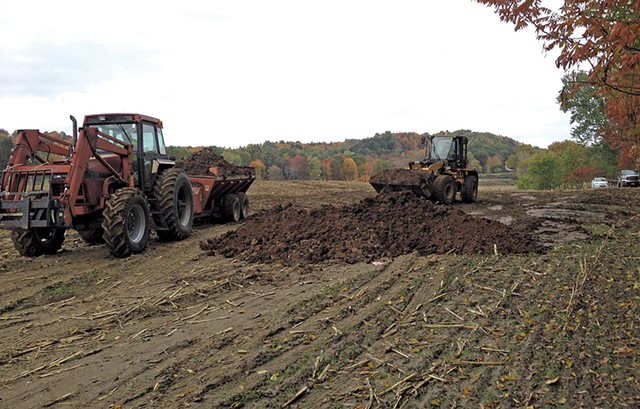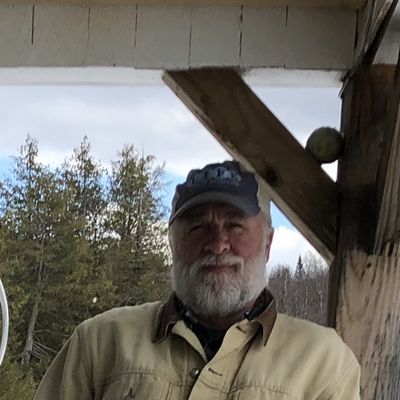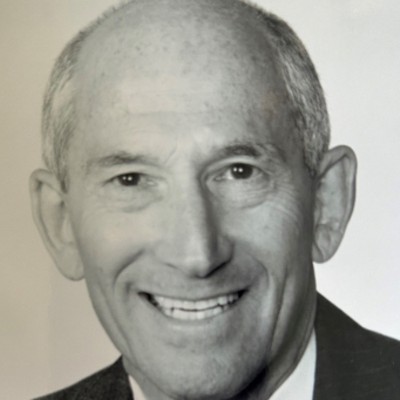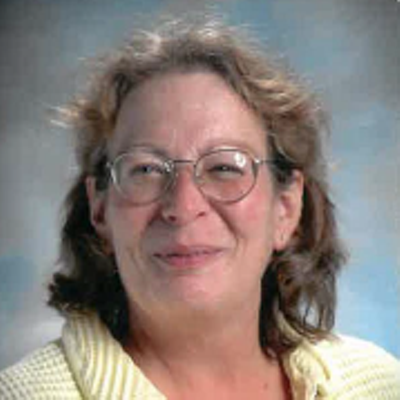
- © Vectormine | Dreamstime
Every spring before he plants corn, and each fall after he harvests it, Lorenzo Whitcomb fertilizes his fields to return nutrients to the soil. The Williston dairy farmer spreads manure from his family's herd of 100 milking cows on many of the 900 acres they farm along the Winooski River. He also uses commercial fertilizers, such as nitrogen and potash.
And, for the past decade, Whitcomb has added something to his soil that is both effective and free: treated sewage sludge.
The material, known in the wastewater treatment industry as biosolids, comes from the Essex Junction plant just up the road.
The sludge has increased the amount of corn he grows to feed cows, reduced his need to buy chemical fertilizers and helped the treatment plant find a use for a waste by-product. "I think it has worked out well for everyone," Whitcomb told Seven Days this week, noting that his family has been farming since the late 1800s. "It's something we kind of feel we're doing for our community, and it's been beneficial for us."
The practice, however, has contaminated the soil and groundwater of some farms with so-called "forever chemicals." PFAS are a class of synthetic chemicals used for decades to make pans nonstick, clothing water-resistant and carpets stain-proof. They don't naturally degrade in the environment.
PFAS accumulate in the body and have been linked to increased risks of cancer and harm to immune and reproductive systems. When flushed down the toilet or drain, PFAS end up in septic tanks and at wastewater treatment plants and can become concentrated in sludge.
Vermont environmental regulators discovered in 2019 that fields where the biosolids had been applied contained elevated levels of PFAS in the soil and groundwater. While drinking water wells were not affected, the discovery led to stricter regulations, including more frequent testing.
Maine went even further and in 2022 banned spreading biosolids on farmland. That state now requires sludge to be disposed of in landfills or trucked out of state.
Underscoring the scale of the problem, a recent New York Times investigation estimated that up to 70 million acres, or a fifth of all the farmland in the nation, has used sludge as fertilizer following decades of encouragement by the U.S. Environmental Protection Agency. The newspaper highlighted ranchers in Texas who blame the chemicals for the deaths of their livestock and a Michigan farmer put out of business when regulators confirmed PFAS contamination on his property.
Despite decades of controversy, Vermont regulators have continued to allow the practice. In 2022, farmers spread about 4,000 tons of sludge from Vermont treatment plants on local fields. It continues to be allowed because other disposal methods — dumping it in landfills or incinerating it — also carry significant environmental risks.
"You have to be realistic about the fact that we have this waste product that we have to do something with," said Matt Chapman, director of the state's Waste Management and Prevention Division. "I think it's a risk that can be managed, frankly, as opposed to doing something like what our friends in Maine have done."
In Maine, paper mills for decades coated paper cups and plates with PFAS, which led to levels of contamination much higher than in Vermont. The state's ban on using the waste as fertilizer has created backups at treatment plants, caused disposal costs to soar and forced the sludge to be trucked long distances.
"I think most regulators would agree that requiring everything to go to a landfill and taking the land application option off the table really makes managing these materials incredibly difficult," Chapman said.
The state's only landfill, in Coventry, has limited capacity. Its leachate, the liquid that drains out of the landfill, is contaminated with PFAS, and regulators have required the facility's operator, Casella Waste Systems, to remove the chemicals.
"Putting it in a hole in the ground isn't necessarily dealing with it," said Eamon Twohig, manager of the state's Residuals & Emerging Contaminants Program.
Some think that's exactly what Vermont should do.
John Brabant, a retired waste regulator who now works with Vermonters for a Clean Environment, called for an immediate moratorium on spreading biosolids on farms.
"It should be required to go into a landfill, because at least there we can control it," Brabant said. "When you spread it across the environment, you're never going to get it back."
Citizens and environmental groups have raised concerns about other toxins, including heavy metals, in sludge for decades, long before PFAS were well understood, he noted. In the early 1990s, a North Clarendon dairy farmer, Robert Ruane, attributed the death of his cattle to biosolids from Rutland that had been spread on his fields for six years, according to contemporaneous reports in the Rutland Daily Herald.

- Courtesy Of Vermont DEC
- Biosolids from sewage waste being prepared for spreading on Vermont fields
State officials denied that the sludge could have contributed to the death of livestock and said the practice was safe for humans. But angry Whiting residents denounced the city's plan to spread biosolids on a large dairy farm in town. Jeff Wennberg, who was then mayor of Rutland, supported the plan. Rutland's landfill had closed and the treatment plant needed a place to dispose of the waste, he recalled in an interview with Seven Days.
Ultimately, the city scrapped the farm plan. Rutland has trucked its sludge, at significant expense, to the Coventry landfill ever since.
"In hindsight, honestly, I am glad that Rutland didn't do it," said Wennberg, who later served as commissioner of the Department of Environmental Conservation and is now retired. "I'm glad that we were not exposed to that potential liability, given what we've found out."
Although PFAS have been widely used in commercial products since the 1970s, public awareness of their health risks only began emerging after lawsuits against DuPont and 3M led the companies to remove products such as Scotchgard and Teflon from the market.
Since 2019, Vermont has discovered PFAS contamination in groundwater at 31 locations where biosolids had been applied, mostly at properties where the material was spread for decades, Twohig said. That's about 23 percent of the locations tested.
PFAS levels in groundwater came back as high as 340 parts per trillion. While it's not directly comparable, that's 17 times higher than the state standard for drinking water, which is 20 parts per trillion for the five PFAS compounds regulated in Vermont.
When such high levels are discovered, the farmers are required to stop applying biosolids until the contamination dissipates.
Regulators have suspended permits at about 18 sites due to contamination, but continue to allow sludge spreading at nine others. Only three plants in the state provide biosolids for local farmland: Essex Junction, Swanton and Windsor. A fourth, Sheldon, also allows the contents of septic tanks, known as septage, to be spread on local fields. Sludge can only be applied to fields after it is treated to reduce pathogens.
Vermont lawmakers have passed laws to ban or phase out the use of PFAS in a number of products, including firefighting foam, food containers, artificial turf and cosmetics. Preventing PFAS from entering the waste stream in the first place is viewed by many environmental advocates as the most effective solution.
"If you keep forcing it into the engine, you're not going to do much about what comes out of the tailpipe," said Steve Collier, general counsel for the Agency of Agriculture, Food and Markets.
Whitcomb says he's not worried about the health of his soil because the PFAS levels in his fields are relatively low and stable. Drinking water wells have not been affected. He is careful to apply sludge at rates the soil and crops can safety absorb and does so well away from roads or water sources. He said he also uses a tractor that injects the material into the soil to reduce odors and the risk of runoff.
Even with all those precautions, however, tests showed PFAS levels in groundwater at two of Whitcomb's fields exceeded the state drinking water standard of 20 parts per trillion. Regulators paused biosolids applications on those fields. It's not clear whether they'll be allowed to resume, Whitcomb said.
New interim regulations approved in April will increase testing requirements and require closer tracking of imported biosolids, according to Twohig, the program manager. The good news is that no PFAS have been detected in drinking water or in crops grown in fields where sludge has been spread, Twohig said.
Regardless, stricter regulations, changing market forces and better understanding of the health effects of contaminants will likely further restrict the practice in the future.
"We're going to see a trend [of] less direct land application onto farms in Vermont," he predicted.






Comments
Comments are closed.
From 2014-2020, Seven Days allowed readers to comment on all stories posted on our website. While we've appreciated the suggestions and insights, right now Seven Days is prioritizing our core mission — producing high-quality, responsible local journalism — over moderating online debates between readers.
To criticize, correct or praise our reporting, please send us a letter to the editor or send us a tip. We’ll check it out and report the results.
Online comments may return when we have better tech tools for managing them. Thanks for reading.